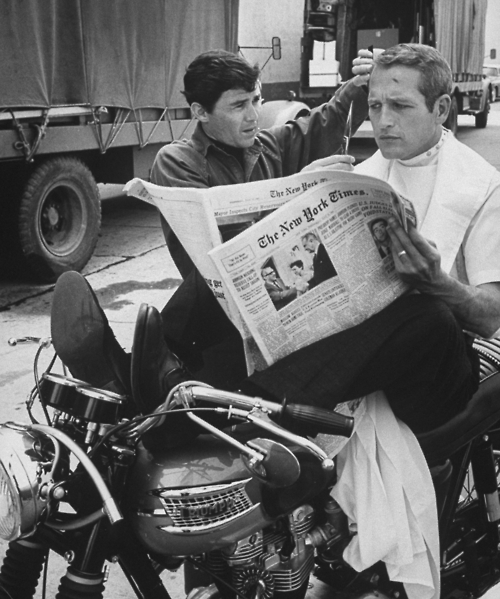Via the always fun Delancey Place, an excerpt about the centuries-old birth of the newspaper from Andrew Pettegree’s The Invention of News:
“The real transformation of the news market [which prior to the printing press had been oral or laboriously hand-written] would come from the development of a news market in print. This would occur only haltingly after the first invention of printing in the mid-fifteenth century. For half a century or more thereafter printers would follow a very conservative strategy, concentrating on publishing editions of the books most familiar from the medieval manuscript tradition. But in the sixteenth century they would also begin to open up new markets — and one of these was a market for news. News fitted ideally into the expanding market for cheap print, and it swiftly became an important commodity. This burgeoning wave of news reporting was of an entirely different order. It took its tone from the new genre of pamphlets that had preceded it: the passionate advocacy that had accompanied the Reformation. … News also became, for the first time, part of the entertainment industry. What could be more entertaining than the tale of some catastrophe in a far-off place, or a grisly murder?
Naturally the elites sought to control this new commercial market, to ensure that the messages delivered by these news books would show them in a good light. Printers who wanted their shops to remain open were careful to report only the local prince’s victories and triumphs, not the battlefield reverses that undermined his reputation and authority. Those printers who co-operated willingly could rely on help in securing access to the right texts. … From remarkably early in the age of the first printed books Europe’s rulers invested considerable effort in putting their point of view, and explaining their policies, to their citizens. …
The divisions within Europe brought about by the Reformation were a further complicating factor: the news vendors of Protestant and Catholic nations would increasingly reproduce only news that came from their side of the confessional divide. News therefore took on an increasingly sectarian character. All this led to distortions tending to obscure the true course of events. … The purveyors of the news pamphlets had a clear incentive to make these accounts as lively as possible. This raised real questions as to their reliability. How could a news report possibly be trusted if the author exaggerated to increase its commercial appeal?”
Tags: Andrew Pettegree

